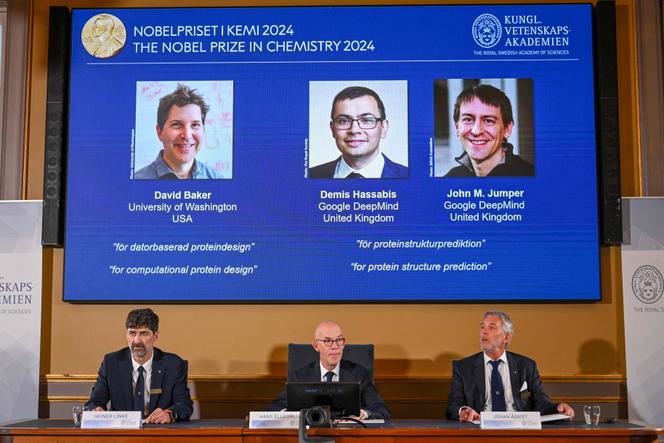


Artificial intelligence has taken center stage once again in this week of Nobel Prize announcements. At least half of the chemistry prize, awarded on Wednesday, October 9, went to AlphaFold, an artificial intelligence tool that has revolutionized the lives of biochemists. The British Demis Hassabis (48) and American John Jumper (39) developed this software at DeepMind, a company co-founded by Hassabis in 2010 and acquired by Google in 2014. The other half of the prize went to American David Baker (62) from the University of Washington, who had tackled the same subject 20 years before his co-winners, without artificial intelligence yet with initial success.
This problem is a sort of puzzle, hard for humans to solve, but easy for Mother Nature: How can we find the three-dimensional shape taken by proteins, when we only know the series of the 20 amino acids that make them up? A virus attaches itself to a cell via proteins (like the famous coronavirus spike); iron is transported in the blood by proteins (hemoglobin); hormones and enzymes are proteins.
As if comprised of a string of beads − amino acids − proteins don't stay in a line like a strand of spaghetti, but instead fold, twist, form helices, hooks and pockets, all of which eventually give them their function. Medical conditions such as Creutzfeldt-Jakob disease are even linked to defects in the folding of proteins.
Yet the information that chemists had about them was often a sequence of genes, coding for amino acids and thereby arranging themselves into proteins. But this wasn't enough to grasp their function or mode of action. Their shape within space was crucial. And it's this thorny problem that DeepMind's 30-strong team, led by Jumper, managed to solve in a work published in July 2021, using several artificial neural network machine-learning techniques.
A few months earlier, at the end of 2020, in a competition among several teams to detect structures from sequences, AlphaFold version 2 crushed the competition, doubling the performance achieved up till then. DeepMind subsequently detailed its algorithm, put its code online and announced its partnership with the European Molecular Biology Laboratory (EMBL) to develop a complete database whose information was used to develop the software.
From 20,000 proteins with a known shape (through crystallization and X-ray analysis or cryo-electron microscopy), the database has grown to 200 million. "Everyone's using AlphaFold!" said Michael Nilges of the Institut Pasteur.
You have 61.23% of this article left to read. The rest is for subscribers only.
